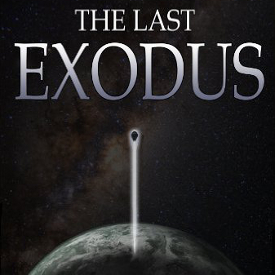I first read Isaac Asimov’s Foundation series while riding the bus to bowling team practice when I was in high school. I was a huge science fiction fan at the time, my friends knew it and they teased me about somehow having missed this seminal series. I finally succumbed to their hounding.
It wasn’t that I hadn’t heard of the series. It wasn’t as if I didn’t know of its profound impact on the genre (one that still echoes today in films and space operaey novels). I didn’t like the way Asimov wrote his fiction (though loved his non-fiction); I’d engaged with his short stories (The Early Asimov, I Robot) and with the stories he considered to be influential (his Before the Golden Age, The Hugo Winners anthologies); I’d even met the man on several occasions, including at a Star Trek convention, but his fiction just didn’t do it for me.
But I knuckled under to peer pressure, picked up the series at a now-defunct book store chain outlet and read it, in the back of the school bus, 15, 20 minutes to the bowling alley and then a long ride home on the late bus (or sometimes even the late, late bus, which we thought was funny owing to the fact that way back then there was television programming referred to as the late, late show).
 I quickly agreed with my friends. The Foundation series was something no good reader of science fiction should miss. Yes, it is guilty of being thin on characterization, but that was a hallmark of golden age SF; people were not the main characters of the story, the cool things they encountered or discovered or were victimized by were. And wow were there many, many cool things revealed in the pages of those three books that represented a mashup of short stories, all of which had appeared previously in issues of Astounding Science Fiction magazine, under the influence and tutelage of the now found greatly wanting editor, John W. Campbell Jr.
I quickly agreed with my friends. The Foundation series was something no good reader of science fiction should miss. Yes, it is guilty of being thin on characterization, but that was a hallmark of golden age SF; people were not the main characters of the story, the cool things they encountered or discovered or were victimized by were. And wow were there many, many cool things revealed in the pages of those three books that represented a mashup of short stories, all of which had appeared previously in issues of Astounding Science Fiction magazine, under the influence and tutelage of the now found greatly wanting editor, John W. Campbell Jr.
As an aside: how mightily things have changed: when I first read these stories, they were the only Foundation stories extant and would remain so for a couple of decades and John W. Campbell was someone who was still revered and exerting (a waning) influence over the genre.
I continued to read Asimov regularly from that point on, having gotten past whatever unidentified issue I’d been having with his writing, greatly enjoying the Caves of Steel/robot detective stories, his editorials in the eponymous magazine that would appear in the late 70s and even agreeing with the voters that The Gods Themselves was a worthy Hugo winner.
I suppose that I was also one of those fans who at some point thought “what a great movie they could make out of these novels…it would be EPIC! Imagine seeing Trantor, an entire planet covered by city…”
Those thoughts took place several years before my formal education in film making would disabuse me of them, and it would take many more decades for the audience (or, rather, Hollywood’s twisted and inaccurate understanding of and disrespect for its audience) to change to such a degree that it would be an impossible lift to turn those books into a story for visual media…or at least one that was halfway decent.
I previous stated my own personal take – briefly – here on Amazing, which you can read here, but I thought it would be interesting to round up the broad consensus now sweeping the web that this series is a success in terms of visuals and a failure of translation AND story telling otherwise. I do so only partly because it is a pleasure to have my earlier prognostications confirmed by so many: it was a mistake to attempt this project, unless it had been handed to SF authors familiar with script writing and a director who was an SF reader first and a director second (such a creature does not exist in Hollywood).
In passing, and before unveiling those reviews, I want to mention two other things: first, I find it the height of self-ownership that the promotional efforts for the series feature statements like “The Award Winning Series” and “Won the Hugo Award for…” when Asimov’s first Hugo, for Best Series of All Time, was given to him largely to get the man to drop his sometime humorous but always painful Toastmastering schtick at the Hugo Award Ceremony, where he regularly complained about not receiving a Hugo and about the undeserving nature of some of the authors who did.
Secondly, Asimov was such a pacifist and such an advocate for logic and science that I do believe he would have been mightily upset by the presentation of an anti-science society in the series. Including such takes this series from a “bad attempt” to a “disrespectful and deliberately distorted” one, at least in my book.
Here then is a roundup of reviews of the first two episodes of AppleTV’s Foundation series. (You’ll note a bit of holding back on the part of those reviews appearing in entertainment press, for obvious reasons.)










